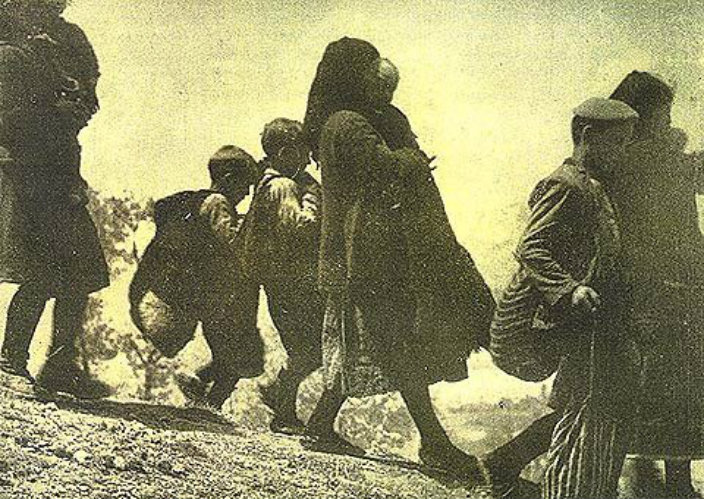The United Nations theme for World Refugee Day 2020, “Every Action Counts”, reinforces the need for compassion and inclusivity.
As we commemorate the 76th anniversary since the plight and mass exodus from Aegean Macedonia (today’s northern Greece) of thousands of Macedonian children called the “Deca Begalci” (child refugees).
“I’m sorry to say that this is another chapter of modern and decisive history that is not as discussed as much as it should be. The Greek Government must grow with the times to realize that a human tragedy doesn’t mean descending into sweeping ad hominem statements and denials. If they’re serious about moving forward, the government must redress this situation and that begins by acknowledging awkward historical truths,” said UMD President Metodija A. Koloski
The United Macedonian Diaspora (UMD) calls upon Greece to repeal the Amnesty Law of 1982 that excludes Greek citizens of Macedonian ethnicity, as well as legislation enacted in 1985 designed to return confiscated properties, but only to “Greeks by genus”.
The end of the Second World War did not bring about global peace; it ignited the Greek Civil War, which lasted from 1944 until 1949. During this period, Macedonian children were forcefully expelled by Greek army forces out of northern Greece (Aegean Macedonia). More than 44,000 Macedonian child refugees (aged between 2-14) were displaced and moved to locations like Skopje, Belgrade, Budapest, Prague, Bucharest, and even as far away as Moscow, Warsaw and Tashkent. Today, their descendants reside in Australia, Canada, United States, Poland, Hungary, the Czech Republic, Germany, and other countries.
In 1947, those who had fought against the Greek government-in-exile, Greek Orthodox Church control, and Greek Monarchist forces in the civil war were deprived of their Greek citizenship and property and were ultimately denied reentry into the country. As a result, the Deca Begalci faced incessant discrimination by the Greek government, culminating in 1982 when the Greek Parliament passed Bill 1540 – legislation that granted amnesty and repatriation to all political refugees who left during the civil war. But even to this day, the legislation does not apply to the children who were displaced from Greece, especially Greek citizens of Macedonian ethnicity.
The Greek government banned the Deca Begalci from returning to Greece because their goal was to populate the Aegean Macedonia territory of Greece with ‘pure’ Greeks. Not only does this demonstrate a failure to adhere to fundamental and internationally guaranteed human rights, UMD believes it also displays basic neglect of human dignity and a lack of compassion. The Deca Begalci were forced to grow up displaced from their homes, family, and friends. To this day, many of them bear the deep trauma of those difficult times, often compounded by the inability to return and reconnect with their roots.
Furthermore, since the annexation of Aegean Macedonia by Greece under the 1913 Treaty of Bucharest, the Greek government and Greek Orthodox Church has upheld a policy of a systematic and forced assimilation and cultural genocide of the Macedonian minority in northern Greece. This is a part of their attempt to claim that Greece is an ethnically homogenous nation, despite evidence to the contrary from the U.S. State Department, United Kingdom Foreign and Commonwealth Office, Amnesty International, Helsinki Watch, Council of Europe, the OSCE, and the United Nations.
Under this policy of assimilation, Macedonians in northern Greece have been subject to ethnic cleansing, political persecution, imprisonment, and harassment. They are also denied core liberties, such as:
1. identifying themselves as Macedonian and being able to hold Macedonian names;
2. speaking or studying the Macedonian language;
3. expressing their Macedonian Orthodox religious affiliation including practicing in their language;
4. sharing their ethnic Macedonian culture with their fellow citizens;
5. establishing ethnic Macedonian cultural associations; and
6. petitioning the Greek government for the redress of their grievances and injuries.
On this World Refugee Day, we recognize the long struggle of Macedonians for basic human rights such as freedom of association and ethnicity, no matter where they live in the world. In particular, we acknowledge the trauma of the Deca Begalci and call upon democratic governments to respond in constructive ways to assist with their healing.

